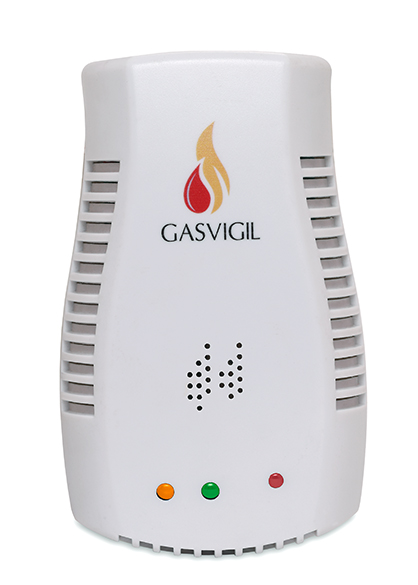Quick Contact
Residential Gas Detector Manufacturers in India

| Detection Gas | LPG/PNG |
|---|---|
| Range | 0-100% LEL |
| Min Reading | 1% VOL |
| Alarm Point | 10% LEL |
| Rated Power | 2.5 W |
| Output Signal | 1 Relay |
| Detection Way | Diffusion |
| Response Time | < 60s |
| Cable Specification | 2 Wire Socket |
| Working Temp | -10C ~ 50c |
| Working Humidity | 10~95% RH |
| Storage Temp | 10C~40C |
| Sensor Type | Semiconductor |
| Power Supply | 230V AC |
| Production Grade | ABS Plastic |
| Way to install | Wall Mounting |
| Weight | 0.200Kg |
Residential Gas Detectors: Safeguarding Your Home from Invisible Hazards
Gas leaks can be a dangerous and potentially fatal hazard in homes. Natural gas, propane, and carbon monoxide are all odorless gases that can cause explosions, fires, and severe health problems if they accumulate in enclosed spaces. Fortunately, there are residential gas detectors available that can alert you to the presence of these gases before they reach dangerous levels.
Types of Residential Gas Detectors
There are two main types of residential gas detectors:
Combustible Gas Detectors:These detectors monitor the air for the presence of any combustible gases, including natural gas, propane, and butane. They are typically placed near potential gas sources, such as stoves, furnaces, and water heaters.
Carbon Monoxide Detectors: Carbon monoxide (CO) is a colorless, odorless gas that can be produced by faulty gas appliances. CO detectors are specifically designed to detect the presence of CO and alert homeowners to potentially dangerous levels.
How Gas Detectors Work
Gas detectors use sensors to detect the presence of gases. When the sensor detects a gas concentration that exceeds a predetermined safety threshold, it triggers an alarm. The alarm is typically a loud, piercing sound that can be easily heard throughout the home.
Importance of Gas Detectors
Residential gas detectors are essential for several reasons:
Early Detection: Gas detectors provide early warning of gas leaks, allowing homeowners to take immediate action to prevent a potential explosion or fire.
Safety Assurance: Knowing that you have a gas detector installed provides peace of mind, assuring you that your home is protected from gas-related hazards.
Choosing the Right Gas Detector
When choosing a gas detector for your home, consider the following factors:
Type of Gas: Determine which type of gas you need to detect, whether it’s combustible gases or carbon monoxide.
Placement: Install detectors near potential gas sources and in areas where people are likely to be present, such as bedrooms and hallways.
Sensitivity: Choose a detector with a sensitivity that meets the safety standards for your jurisdiction.
Features: Some detectors offer additional features, such as digital displays, remote monitoring capabilities, and self-testing functions.
Maintenance and Testing
To ensure optimal performance, it’s crucial to maintain and test your gas detectors regularly. Here are some guidelines:
Test Monthly: Test your detectors monthly by pressing the test button. The alarm should sound if the detector is working properly.
Replace Batteries: Replace the batteries in your detectors every year or as recommended by the manufacturer.
Inspect Regularly: Visually inspect your detectors for any damage or obstruction.
Professional Inspection: Schedule a professional inspection of your gas detectors every few years to ensure they are functioning correctly.
Residential gas detectors are essential safety devices that protect homes from the dangers of gas leaks. By choosing the right detector, installing it properly, and maintaining it regularly, you can ensure the safety of your family and property. Remember, early detection is crucial, so don’t hesitate to install gas detectors in your home today and safeguard yourself from potential hazards.
